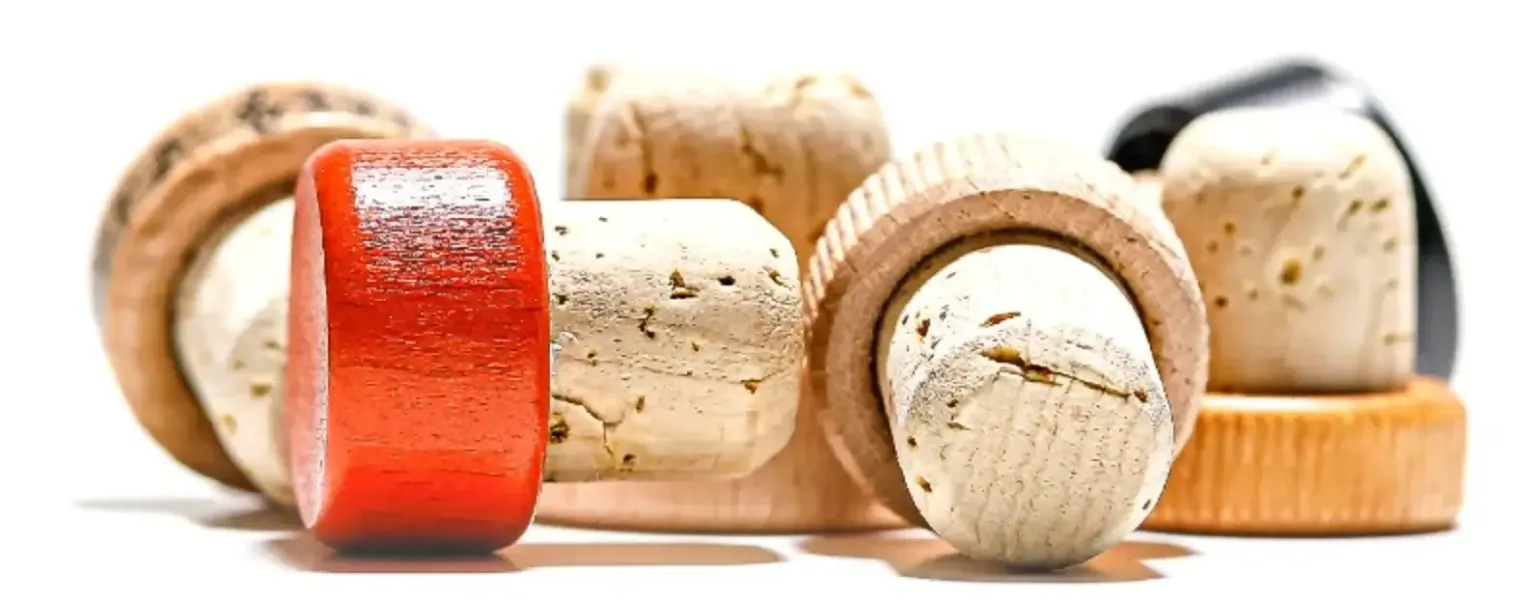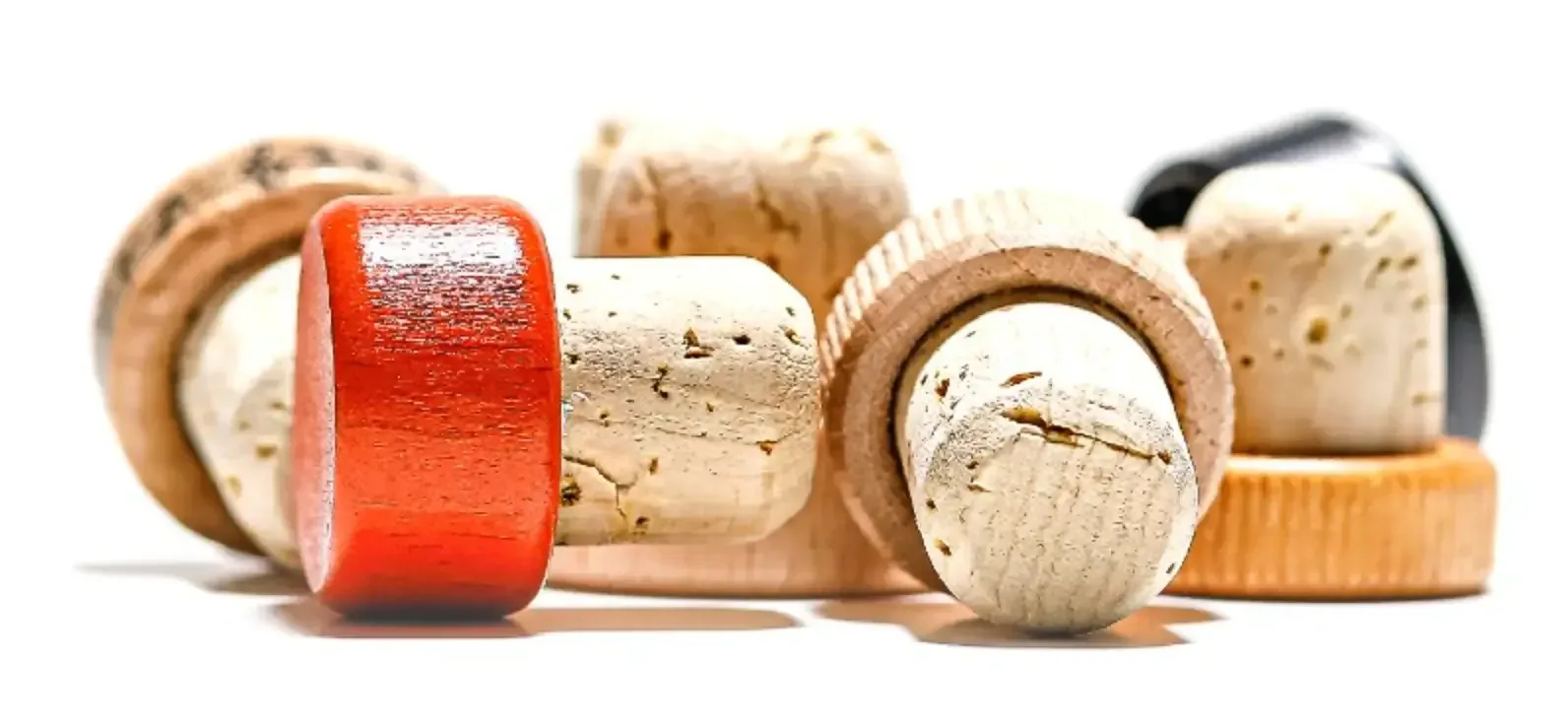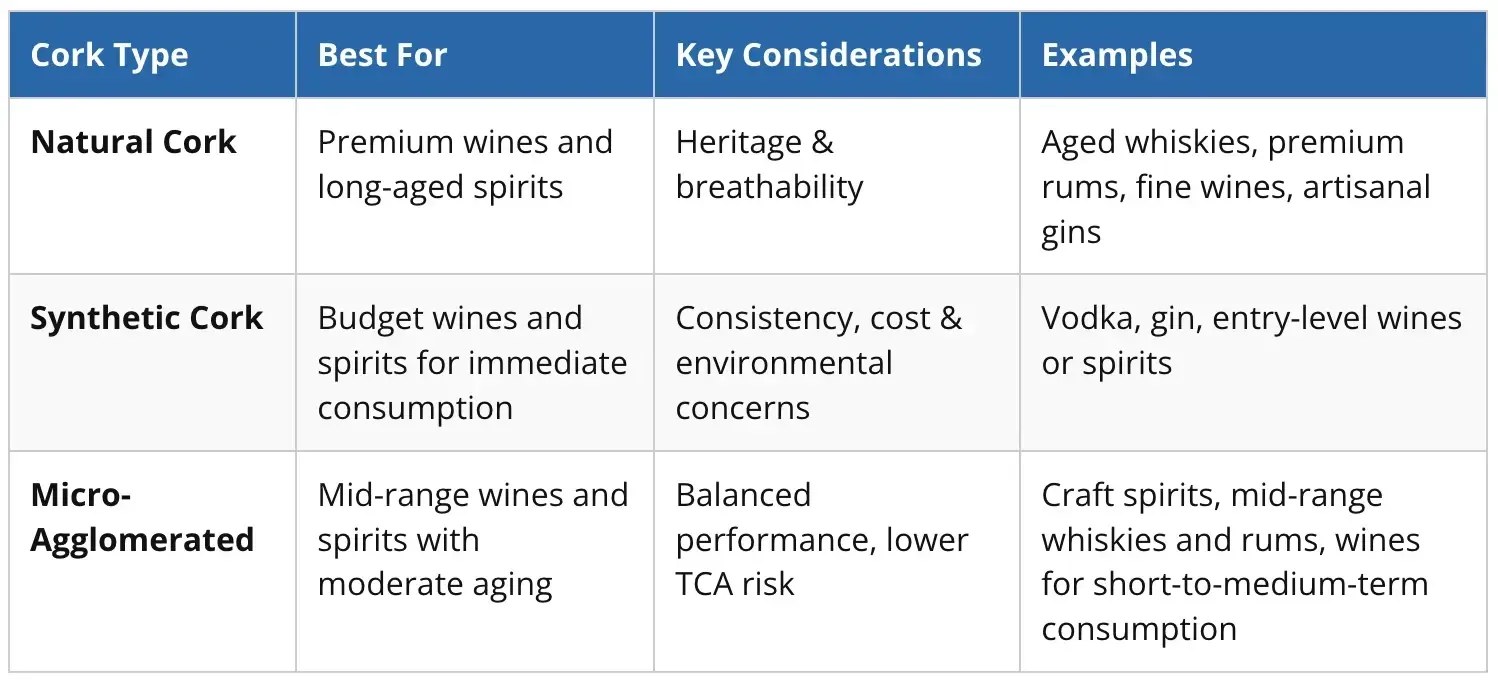Viscose Closures: Choosing the right cork – A guide for wine and spirits producers

Supplier News
Selecting the right cork stopper is a crucial decision for both winemakers and spirit producers. The choice of closure directly impacts product quality, consumer perception, and sustainability. Today, three main types of corks dominate the market: natural cork, synthetic cork, and micro-agglomerated cork. Each offers unique characteristics, that determines its suitability according to beverage style, budget, and brand priorities.

Natural cork
Overview: Natural corks are made from the bark of the cork oak tree, harvested sustainably every 9-12 years. They are traditional, widely recognised, and often regarded as a premium closure for wines and spirits.
Pros:
- Heritage and perception: Consumers associate natural cork with quality and tradition, enhancing brand image for wines and aged spirits.
- Breathability: Natural cork allows tiny amounts of oxygen through, aiding the aging process in wine and certain spirits like whiskies and rums.
- Sustainability: Natural cork is a renewable and biodegradable material.
- Elasticity and reseal-ability: Natural cork compresses and expands to provide a good seal and allows re-corking.
Cons:
- TCA: TCA is a natural fungus that can be present in cork bark and is responsible for when a wine or spirit is “corked”. To ensure our corks and bar tops are TCA free, the cork bark goes through multiple cleansing and purification processes to ensure there is no harmful TCA present. Alongside this, our cork goes through approximately 15 different quality check points that involve both manual intervention as well as high tech AI machinery. So, you can be assured your natural corks are TCA free. Our manufacturing partner in Portugal runs their factory efficiently and uses any waste from processing to fuel their ovens and boilers – a full circle system!
- Variability: Natural corks are not always totally uniform, sometimes affecting oxygen ingress.
- Cost: Cork is more expensive than other options.
Synthetic cork
Overview: Made from plastic compounds designed to mimic natural cork, synthetic corks provide uniformity and eliminate TCA risk.
Pros:
- No TCA risk: which ensures product integrity.
- Consistency: Precise specifications allow for predictable oxygen transfer and sealing.
- Cost-effective: Synthetic cork is cheaper than natural cork, ideal for lower-priced wines and spirits.
Cons:
- Environmental concerns: Made from plastic so less eco-friendly because it does not biodegrade like natural cork.
- Perception: Some consumers associate them with lower-quality wines or spirits.
- Aging limitations: Less oxygen ingress can impede long-term maturation.
Micro-agglomerated cork
Overview: Engineered by binding small cork granules with food-grade adhesives, sometimes combined with natural cork discs at the ends.
Pros:
- Reduced TCA risk: due to smaller cork particles. In addition, as mentioned in the natural cork section, to completely eradicate the risk our cork bark goes through multiple cleansing and purification processes to ensure there is no harmful TCA present. To ensure the cork is TCA free there are also approximately 15 different quality check points that involve both manual intervention as well as high tech AI machinery so you can be reassured our natural corks are TCA free!
- Consistent performance: Controlled manufacturing ensures uniform oxygen transfer.
- Cost-effective: lower in cost than natural cork and not made from plastic like synthetic cork.
- Good for moderate aging: Ideal for wines and spirits that are meant to be consumed within a few years.
Cons:
- Perception: Viewed as less prestigious than 100% natural cork.
- Adhesives: Food-safe, but some consumers remain cautious.
- Not ideal for long-term aging: Most suitable for medium-term storage rather than long-term.
Conclusion: Which cork should you choose?

Summary:
- Natural cork enhances the aging process for wines and spirits, supports premium branding, and suits limited-edition releases.
- Synthetic corks are good for spirits and wines intended for quick consumption or cost-sensitive products.
- Micro-agglomerated corks offer a balance of quality, consistency, and moderate aging, making them suitable for mid-tier wines and craft spirits.
This article was originally published by Viscose Closures.
Related News
-
Supplier News
Viscose wins Manufacturing Business of the Year at The Swansea Bay Business Awards 2026
-
Supplier News
Viscose Closures forms new distribution partnership in Australia
-
Supplier News
Viscose Closures: From factory floor to festive store – the journey of a safe product
-
Supplier News
Viscose launches new tethered plastic screwcaps
-
Supplier News
Viscose Closures: Shrink sleeves vs. adhesive tape – the smart choice for beauty and gift pack packaging





